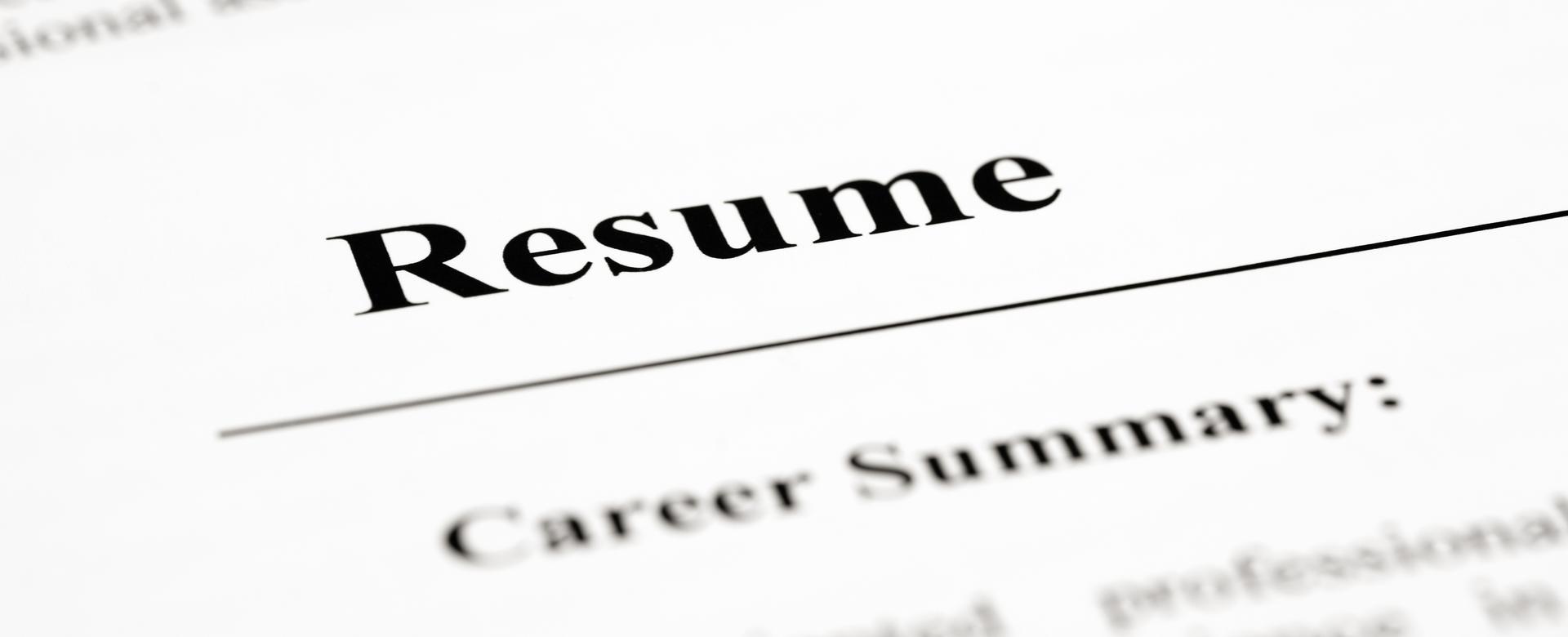Sometimes your résumé is your first impression. You may have perfected your interview skills, be passionate about the job and have some great experience to offer a company but, if you can’t successfully articulate that in your résumé and cover letter, you may knock yourself out of the race before it even gets going. When it comes to applying for a job your résumé can really help you…or it can really hurt you.
Here are some tips to consider:
Tailor your résumé: One of the most impressive things a candidate can do is to emphasize specific experience within their résumé and cover letter that relates to the job description. This demonstrates a genuine interest in that particular organization and position. It says to employers that you are interested in them and the specific opportunity and not just casting your net and hoping for any job that comes your way. On the other hand, if it is clear your résumé is a generic copy or if it references the wrong job, location or company, it will illustrate a lack of true interest and can be a major turn off to employers.
Use Spell Check! This is a seemingly obvious tip that everyone is familiar with but surprisingly many don’t take the time to use it. Your ability to spell, your use of grammar and your writing skills all reflect on your competency in the employer’s eyes. If you do use Spell Check make sure it has corrected the spelling to the word you have intended to use.
Company summary: You may have worked for a company with products/services that strongly align with the company you hope to work for but if the employer isn’t familiar with the organization they may pass you over. It is very helpful to employers if you include a brief blurb below your title in your résumé that describes the industry and the size of the company you work for.
Keep it simple! Employers don’t want to have to struggle to read your résumé and cover letter so make it easy for them. Section your résumé into neat sections including education, work experience, community activities etc. Don’t ramble. Use point form, use bolding/underlining for titles and companies, and make sure to include dates of employment and education in chronological order. It is important to include key information about your career history but try and limit it to 5 pages (cover letter included).
Contact Information: Work phone and e-mail are fine to list as your contact information as long as they are confidential. If you do list a cell or home phone number, ensure there is voicemail so the employer can leave a message. If you use your home e-mail address just ensure it is professional. Generally, using your name is the best way to go.
Quantify your accomplishments: Don’t be shy! If you have achieved some key accomplishments in your previous roles employers want to know about them! General statements and positive adjectives about your profile aren’t enough. It is important to include some metrics. How many people did you manage? Did you manage a budget and how large was it? Did you land a major account or generate the highest sales in your organization? Did you negotiate a major deal? Including this important information doesn’t indicate an ego by any stretch - it demonstrates your contributions to your previous organizations and gives employers a better sense of your experience.
Your résumé is a reflection of you and can be your first opportunity to present yourself to a potential employer. You wouldn’t show up to your interview in sweat pants so make sure your résumé is as sharp as that suit you plan to wear when they invite you for an interview!

Instrumental in the completion of hundreds of executive search assignments, Andrea’s commitment to providing strong strategic counsel and building lasting partnerships is evident.






